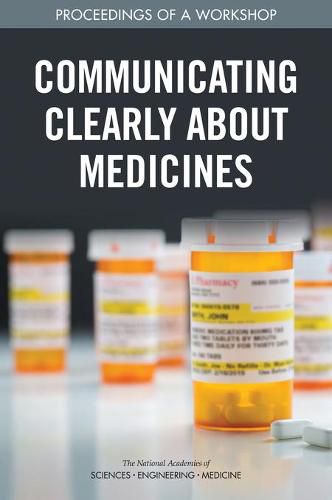Readings Newsletter
Become a Readings Member to make your shopping experience even easier.
Sign in or sign up for free!
You’re not far away from qualifying for FREE standard shipping within Australia
You’ve qualified for FREE standard shipping within Australia
The cart is loading…






Research conducted over the past two decades has shown that poor patient understanding of medication instructions is an important contributor to the more than 1 million medication errors and adverse drug events that lead to office and emergency room visits, hospitalizations, and even death. Patients who have limited literacy skills, who have multiple comorbidities, and who are elderly face the greatest risk, and limited literacy skills are significantly associated with inadequate understanding and use of prescription instructions and precautions. The Agency for Healthcare Research and Quality notes that only 12 percent of U.S. adults have proficient health literacy that allows them to interpret a prescription label correctly.
Given the importance of health literacy to the proper use of medications, and the apparent lack of progress in improving medication adherence, the Roundtable on Health Literacy formed an ad hoc committee to plan and conduct a 1-day public workshop that featured invited presentations and discussion of the role and challenges regarding clarity of communication on medication. Participants focused on using health literacy principles to address clarity of materials, decision aids, and other supportive tools and technologies regarding risks, benefits, alternatives, and health plan coverage. This publication summarizes the presentations and discussions from the workshop.
$9.00 standard shipping within Australia
FREE standard shipping within Australia for orders over $100.00
Express & International shipping calculated at checkout
Research conducted over the past two decades has shown that poor patient understanding of medication instructions is an important contributor to the more than 1 million medication errors and adverse drug events that lead to office and emergency room visits, hospitalizations, and even death. Patients who have limited literacy skills, who have multiple comorbidities, and who are elderly face the greatest risk, and limited literacy skills are significantly associated with inadequate understanding and use of prescription instructions and precautions. The Agency for Healthcare Research and Quality notes that only 12 percent of U.S. adults have proficient health literacy that allows them to interpret a prescription label correctly.
Given the importance of health literacy to the proper use of medications, and the apparent lack of progress in improving medication adherence, the Roundtable on Health Literacy formed an ad hoc committee to plan and conduct a 1-day public workshop that featured invited presentations and discussion of the role and challenges regarding clarity of communication on medication. Participants focused on using health literacy principles to address clarity of materials, decision aids, and other supportive tools and technologies regarding risks, benefits, alternatives, and health plan coverage. This publication summarizes the presentations and discussions from the workshop.